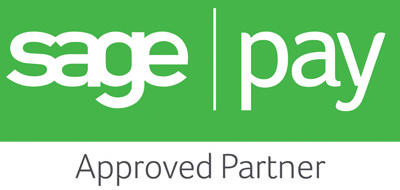Semantic Search – What Does it Mean?
When we search for information online we rarely use just one or two words, instead we tend to ask Google to second guess our intentions when we search for something. Until 2013, site owners relied on searchers using the keywords they had optimised the website for, hoping that those people would search for “plumbers in Plymouth” rather than “need bathroom fitting in south west”. In 2013, Google rolled out an update (called Google Hummingbird) to its search algorithm, which changed the way results were returned for keyword searches. Rather than display results that had the right keywords and ticked all the old boxes, the search query would return results that were deemed more relevant to searcher intent. Now, a reputable plumbing firm based in Plymouth would want to create content on their website that is relevant to all sorts of plumbing work in the whole geographic area in order to be well placed in the search results.
It is not the searcher's behaviour that changed; indeed they may very well have searched for “plumbers in Plymouth”, but Google has changed the way it ranks websites for relevancy and knows what users intend to search for. In fact, the autocomplete function on Google searches is powered by this information, compiled from hundreds of thousands of searches. Additionally, if a searcher has a Google account and is signed in, the results they will see on any given search are based on what Google thinks they are looking for and interested in. Again, this is a picture built up of several pieces of data gleaned over time from that user's browser history and search activity.
This data was also used to create Google's RankBrain, a programme which learns about searcher behaviour, tracking the journey from search to page and building up a picture of how relevant each website is to the searcher intent. The longer a searcher spends on a page they have visited as the result of a search, the more relevant it is deemed to be and the higher it will appear in future searches for the same intent. Every search query performed on Google helps RankBrain decide how relevant each result is.
Semantic search is the result of the improvements to the way Google rates websites incorporating the intent of the searcher, the relationship between terms used in the search query and the context of the search. If a person has just been looking at bathroom supplies online and then searches for a plumber in their area they're more likely to see results of plumbers who specialise in domestic bathroom installation and tiling than if they had just been looking at storm drain systems or industrial waste management. That recent search history might make Google show them results for heavy duty plumbers who specialise in sewers and industrial drainage.
So how can a site owner ensure that Google knows their information and content is relevant to searchers? In the past keyword-heavy content was the answer, and lots of it. Although there is no reason to stop adding relevant and useful content to your site it now makes sense to target an intent, rather than a set of keywords, both with blog articles and the site content itself. This may mean slimming down the number of pages or articles you host to a select few that cover searcher intent.
We know someone looking for a plumber to fit a bathroom in Plymouth may search for “plumber in Plymouth”, “plumbers in the South West” or even “new bathroom fitted Plymouth”. We also know their intent is to find a plumber who can install their new bathroom, so the focus of a landing page for these customers would be domestic bathrooms, new bathrooms, wet rooms and shower fitting, for example. The content you add may focus on the installation process and timeline for the average bathroom, which is what your searchers really want to know. Google knows what the searcher is really looking for with their searches, and will return your website or landing page in the results because it is relevant to the intent of the searcher. Clever isn't it? We'll be looking at how website owners can turn semantic search to their advantage in a future blog.
